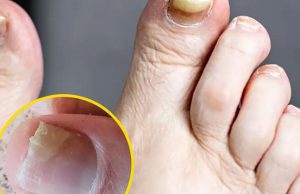6 Foods You Should Stop Eating In Your 60s And Above To Keep Your Kidney Healthy

The kidneys play an essential role in the body by filtering blood, making hormones, excreting waste products in the urine, maintaining normal body fluid levels and balancing mineral levels. If the kidneys are not able to remove toxins from the blood and body, it can lead to a wide range of health problems.
Proper nutrition is essential to maintaining healthy kidneys and avoiding chronic kidney disease.
Below are some of the foods you should stop eating or ingesting in your 60s and beyond to keep your kidneys healthy.
1. Organ meats
In addition to being high in saturated fat and cholesterol, organ meats also contain purine, which promotes the formation of uric acids that can be deposited in the kidneys and cause kidney stones.
2. Alcohol
Alcoholic beverages, including beer, wine and especially dry alcohol (or spirits), dehydrate the body, which reduces the kidneys’ ability to process blood and can lead to kidney failure. Reducing alcohol consumption is especially important for older people because it slows the degeneration of the kidneys and other organs.
3. Canned foods
People over 60, in particular, can experience adverse effects on their kidney health due to the sodium and preservatives found in canned tomatoes, fruits and vegetables.
4. Soda
Scientists have linked multiple health problems, including dental caries and kidney disease, to the artificial sweeteners and additives commonly found in soda. Reducing soda consumption has been shown to reduce the risk of kidney disease, obesity, as well as other health problems.
5. Food processing products
Consumption of processed foods such as smoked fish and pork, salted and dried foods, cured goods, and canned goods can increase the risk of chronic kidney disease and possibly other chronic health problems, especially in older adults.
6. Butter
Butter is full of unhealthy fats such as animal fats, saturated and trans fats, including cholesterol, which add to the strain on the kidneys and increase the risk of kidney and heart problems.



















